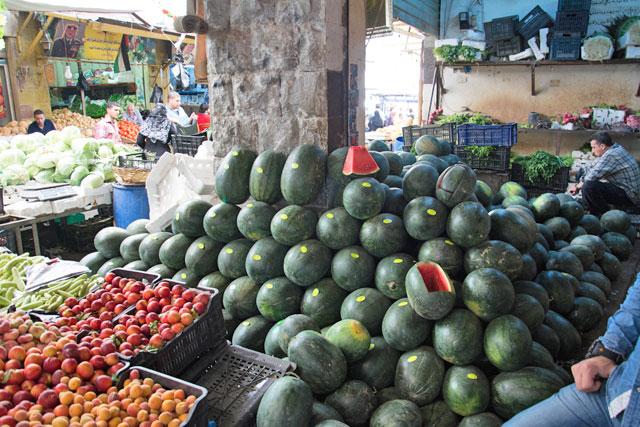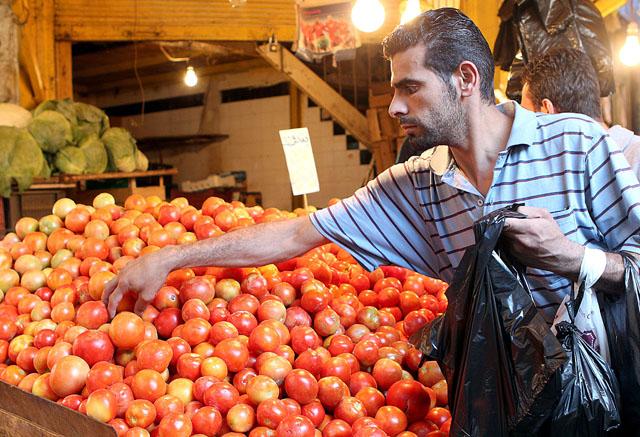You are here
Less highland area planted with summer crops this year — report
By Hana Namrouqa - Dec 24,2014 - Last updated at Dec 24,2014

AMMAN — Terrain planted with summer crops in the highlands dropped by 3.5 per cent during this year compared to the same period last year, a report released on Wednesday said.
Total terrain planted with summer crops in the highlands dropped from 994,005 dunums in 2013 to 959,008 dunums this year, according to a Department of Statistics (DoS) report.
The highlands, such as the desert and Shafa Ghor (land adjacent to the Jordan Valley), are among the sources of summer crops between May and September, according to the Ministry of Agriculture, which said that summer crops include watermelons, tomatoes, bell peppers, peaches, mandarins and apricots.
Summer crops require some 25 million cubic metres (mcm) of water annually, according to the Water Ministry, which resorts in times of drought to banning or limiting the cultivation of summer crops due to the low water storage at the dams.
The DoS report said that in the highlands, terrain planted with vegetables dropped from 206,009 dunums in 2013 to 179,006 dunums this year, which is a 13.2 per cent decline.
Land planted with eggplant, cucumber and zucchini dropped this year in the highlands by 15.8 per cent, 24.1 per cent and 38 per cent respectively, compared to last year.
The report, however, said that planting fruit trees in the highlands increased by 1.1 per cent and land planted with watermelon increased by 2.4 per cent. Also, land planted with olive, grape and peach increased by 0.5 per cent, 0.3 per cent and 9.1 per cent consecutively.
Agriculture Minister Spokesperson Nimer Haddadin told The Jordan Times on Wednesday that official figures indicate that land planted with fruit and vegetables across the country are expanding, noting that in 2012 the terrain of cultivated land stood at 2.46 million dunums and in 2013 reached 2.61 million dunums.
Haddadin said that summer crops not only provide farmers in the Jordan Valley with income, but also support the country’s economy, as vegetables and fruits grown there during summer are exported to various markets.
Meanwhile, the report indicated that land planted with field crops dropped from 40,002 dunums in 2013 to 24,009 dunums this year, constituting a 38.1 per cent drop.
Related Articles
AMMAN — The Kingdom has exported around 3,000 tonnes of melon and watermelon since the start of this month, the majority of which was to Gul
Prices of tomatoes are set to drop in mid-November when farms in the highlands start supplying the local market with their produce, a government official said on Tuesday.
Jordan’s exports of fruit and vegetables during the first nine months of this year increased by 14 per cent compared to the same period last year, government officials said on Wednesday.














